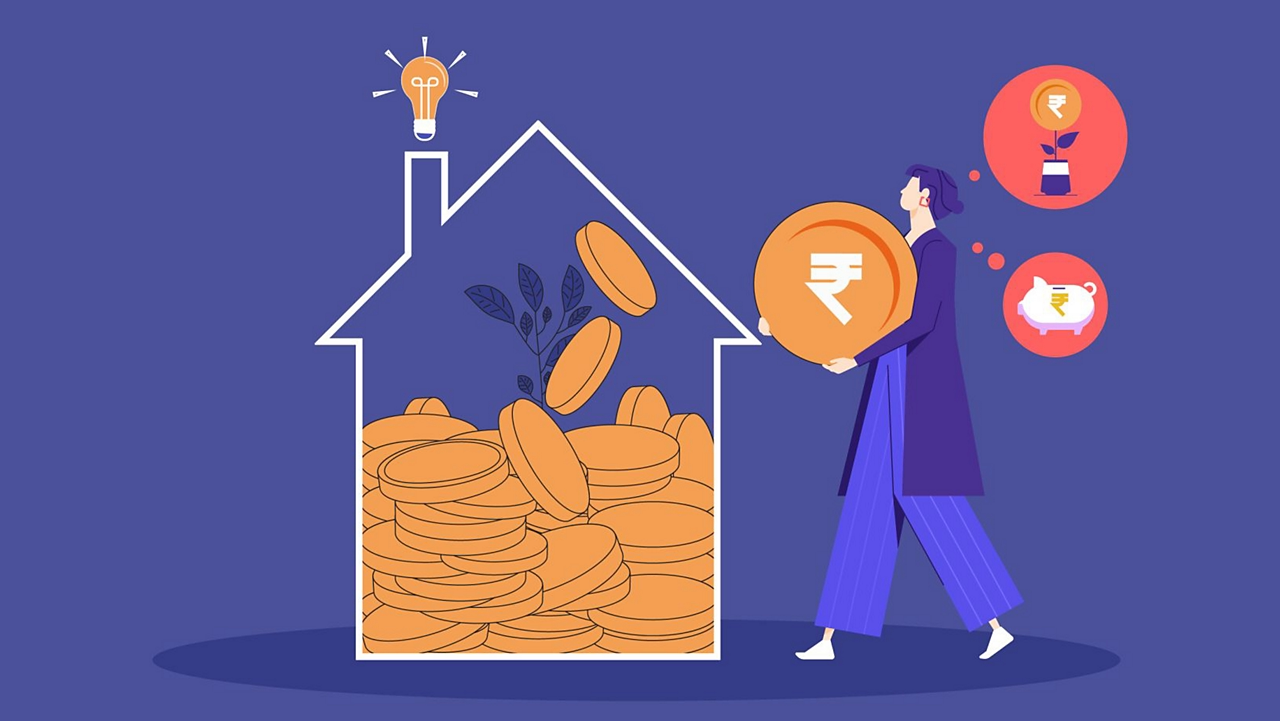Her Money, Her Power: Financial Literacy and its Importance for Women
By Chetna Gala Sinha | Founder and Chairperson, Mann Deshi Bank, and Mann Deshi Foundation |Mar 07, 2023
Financial literacy is a vital component for effective personal financial management. Unfortunately, many people lack knowledge about the financial tools that can help them maintain a balanced financial diet. This is especially true for women, who face unique challenges in achieving financial independence. As they strive to be heard and seen in various settings, empowering them with financial literacy can be a critical step towards building a more inclusive future. Chetna Gala Sinha, Founder of Mann Deshi Bank, delves deeper into various aspects that facilitate financial literacy for women.
Financial literacy plays a vital role in empowering individuals to take control of their finances and secure their financial future. Unfortunately, not all individuals have equal access to financial education and resources, with women facing a particularly significant set of barriers in this regard. In this article, we will delve into these barriers in detail, highlighting the obstacles women face in their pursuit of financial literacy.
In India, the patriarchal setup of the society denies women equal opportunities for education and professional growth. The cultural norms emphasise the cultivation of the ‘softer’, traditionally more feminine traits, over honing the practical skills of women. This creates a stark contract in their values and education as compared to their male peers.
These biases also cast their shadow in the realm of finance, a sector stereotypically male dominated, making the journey to financial literacy for women plagued with numerous hurdles. The barriers range from deeply ingrained societal norms that prescribe traditional gender roles, to a lack of access to financial education and resources, physical limitations of mobility and accessibility to financial institutions, as well as income inequality, leaving women with either limited or no options for personal financial management.
The Saver’s Instinct
For generations, we have observed that in most households, women tend to be the savers while men tend to be the spenders, making key decisions on expenditure. This is a testament to women's proclivity towards responsible financial planning and their consideration for the future. However, due to several constraints like lack of awareness, inadequate documents, and monetary problems, they are unable to visit banks, open savings accounts, or keep track of their transactions. This causes them to opt for the simplest solution which is keeping their money as is, i.e., in liquid form. This is often misconstrued as their inability to understand money-related tools and practices and also labels them as risk-averse. However, these assumptions are a rather simplistic deduction of their financial behaviour. The real reasons behind women's preference for liquidity over investment are multi-faceted.
- Arranging for immediate funds: In times of existing financial constraint, an unexpected emergency can have a devastating impact, making liquid assets one of the first resources they turn to in order to weather the storm. The lack of immediate access to resources and high probability of emergencies makes them want to keep their money closer as it offers more control and confidence to deal with the situation at hand. For those who do choose to invest, gold often tops the list as a trusted source of security. It is estimated that around 60% to 70% of gold buyers in India are women.[1] Over the years, gold has become a form of insurance for many women, as it can be quickly liquidated. In times of crisis, it is not uncommon for women to either rely on the savings they have meticulously set aside or sell and mortgage their gold because of the ease of doing it, in the unorganised sector. In contrast, a gold loan or mortgage through a bank involves a tedious process of paperwork and verification, strict working hours that must be abided by, etc., that makes banks an inviable option. Therefore, by prioritising control and peace of mind, women are making smart financial decisions.
- Supply side inefficiency: More importantly, there is a major gap on the supply side over the kind of financial products that are being devised. These products by the banking sector, postal services, or even mutual funds, etc., are predominantly designed, advertised, and marketed only for the male audience. Therefore, it is imperative for financial products to be well-suited for the needs of women who come from humble and underprivileged backgrounds. They need to design products for irregular income streams and make them flexible to meet their unique financial circumstances. For instance, one is more likely to see goldsmiths approach women for offering loans and mortgaging services, while executives from mutual fund or banking agencies consider men as their primary customer pool. Therefore, more than ever, the supply side too needs to be financially literate to introduce products that reach women, are designed for women, and also match the cashflow of women. A robust example is the Sukanya Samriddhi Yojana by the National Savings Institute that encourages parents to build a secure future for the girl child through regular deposits that can be used for their education and other purposes. The ease with which this scheme can be availed is the only reason why a huge chunk of the population has signed up for the initiative. The scheme mobilised a total amount of INR 1.66 lakh crore (approximately USD 22 billion) as of March 2021, with over 3.2 crore (32 million) accounts opened under the scheme.[2]
Women are eager to become part of the financial decision-making circle, and bridging the gap from the supply-side of financial education and resources is key to empowering them. By providing the necessary resources and education, women will be better equipped to take control of their financial future and achieve their goals. The question of their risk-aversion associated with using financial instruments like stock trading, is redundant because the lack of opportunities and suitable financial products hampers their ability to take the first step towards becoming financially literate.
Bridging the Rural-Urban Divide
In India, the societal norms have historically placed a greater emphasis on cultivating the traditional roles and responsibilities of women, rather than on their financial literacy and independence. As a result, women are often not taught the practical skills they need to manage money and investments, and thus have limited exposure to the financial sector and financial products. Apart from the lack of education (and the bias within the education imparted), the cultural and social norms that emphasise women's dependence on men, can create significant barriers for women seeking to become financially literate and independent, thus leaving them vulnerable to financial insecurity and instability. Therefore, despite the fact that there is relatively better education and awareness in urban areas, urban women are still left behind in terms of having ownership of their finances.
Rural women, according to me, are much more capable of handling their finances as compared with urban women because of the difference in circumstance. The unique nature of their challenges equips them with a heightened sense and understanding of money management, leading them to take a step towards being financially independent.
First, most household finances in urban areas are either shared or completely managed by men which in turn leave the women to focus on only juggling the household chores. However, in rural households, women are engaged in various income-generating activities such as rearing livestock or selling products such as vegetables, which puts them at the forefront of household financial management along with the regular chores.
Second, it is relatively more difficult for rural women to get money from their husbands as opposed to most urban women who get a regular stream of income either from their husbands or from their own job. Being resource challenged, makes the lives of rural women even more difficult. And when individuals are resource challenged and lack financial means, they always tend to keep some money aside to attend to emergencies.
Third, rural women often participate in the informal sector activities that carry significant risks. Therefore, they remain open to taking on these challenges as they have fewer resources to lose compared to urban women. As a result, rural women exhibit a willingness to continuously learn, unlearn, and adapt to changing trends.
Overcoming Obstacles
There are multiple problems that present themselves to women by the virtue of their gender alone. A job loss, divorce, passing away of the bread winner, healthcare setbacks, etc., often throw them off track from doing the little financial management they could afford to do. In such situations, they are forced to immediately arrange for funds without any prior experience. There is also a lack of support from immediate family, be it the in-laws or her parents, that makes the situation worse. Such reluctance is rarely seen when the man loses his job. The parents come rushing to give a helping hand and console him for facing such a tragedy. Also, setting up of emergency funds, having retirement plans, etc., are urban concepts that most underprivileged women cannot afford to prioritise, as making ends meet in the present holds more importance than planning for the future.
In order to help women overcome these problems, it is important to design and customise products that suit the need and income stream of women. Consider the example of the Pension Scheme by Mann Deshi Bank that was designed and molded to fit the needs of women from rural areas. These women could only afford to save INR 4-5 every day, and hence, agreed to deposit around INR 200 every month towards their pension accounts as opposed to the standard of INR 500. Within a week of launching this scheme, close to 7000 women signed up for being a part of this initiative. This depicts the importance of introducing micro-collection systems to schemes which are targeted towards individuals who are micro-earners. This is the only thread that would help institutions in binding and retaining them. It is imperative that institutions understand that inaccessible solutions for poor people is not the way forward.
Institutions must make sure to not only provide women with access to finance, but also give them the knowledge and the means to control it. Providing banking solutions at the doorstep, having women-to-women correspondence models, micro-credit, etc., are the steps that can transform the involvement of women in financial spaces. With the right infrastructure and initiatives provided by the government, mobile banking solutions and other digital financial tools can also play an important role in reaching women who may be otherwise excluded from formal financial systems. Ultimately, by creating tailored solutions that meet the unique needs and circumstances of women, we can help bridge the gap between financial exclusion and inclusion and create a more equitable and just society for all.
[1] World Gold Council. (2018). India's gold market: evolution and innovation. Retrieved from https://www.gold.org/goldhub/research/indias-gold-market-evolution-and-innovation
[2] Press Information Bureau. (2021, April 1). Highlights of Union Budget 2021-22. Ministry of Finance, Government of India.

Chetna Sinha | Mann Deshi Bank
Chetna Gala Sinha is the Founder-Chairperson of the Mann Deshi Bank and Mann Deshi Foundation. Chetna passionately believes that empowering poor rural women transforms and fuels growth in an economy. In 1997, she set up the Mann Deshi Mahila Sahakari Bank, India's first bank for and by rural women. Today, the Mann Deshi Bank has loaned over INR 780 million to women acoount holder and regularly creates new financial products to support the needs of female micro-entrepreneurs.




